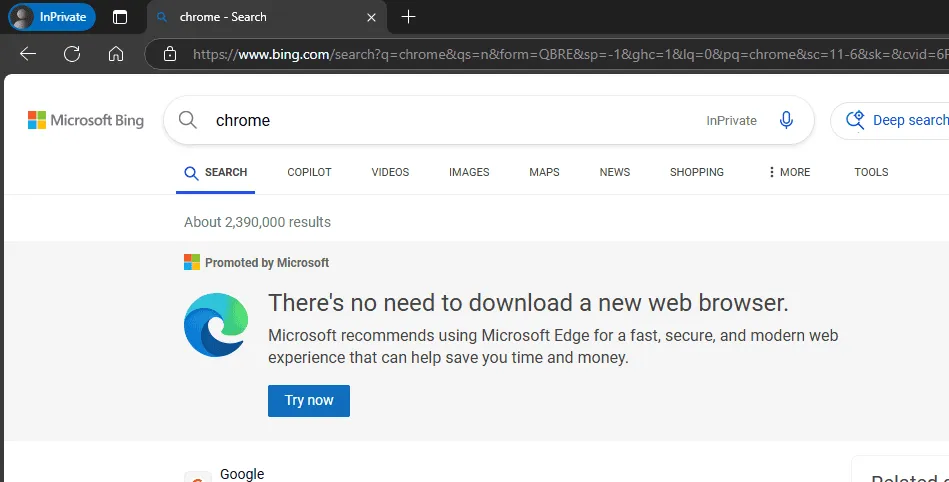Microsoft Intensifies Edge Promotion and Incentives for Chrome Users in Incognito Mode
Microsoft continues its aggressive strategy targeting Google Chrome users. Recently, while browsing in Chrome’s incognito mode, we observed that Bing prominently displayed advertisements for Microsoft Edge and the Rewards Extension when searching for Microsoft Edge.
As the owner of both Edge and Bing, Microsoft competes against Google, which owns Chrome and Google Search. Despite Google’s lead in the search engine and browser markets, Microsoft is gaining ground with Edge since transitioning to the Blink engine and Chromium foundation.
You may already be aware of Microsoft’s effort to market Edge through Bing when users search for Chrome. However, the situation appears to have intensified.
Bing Displays Microsoft Edge and Rewards Extension Ads in Chrome Incognito Mode
Today, we noticed that in Chrome’s incognito mode, Microsoft Bing was not only advertising Microsoft Edge but was also urging users to install the Microsoft Rewards extension, which enables users to earn gift cards through their Bing searches.
This practice raises significant privacy concerns. Bing’s strategy prompts questions about Microsoft’s dedication to user privacy.
Moreover, while using Edge’s InPrivate mode, Bing is also promoting Microsoft Edge when users search for Chrome.

Although one might consider Microsoft’s advertising on Bing a standard marketing strategy, targeting Chrome users in incognito mode significantly raises privacy concerns.
Incognito mode is intended to provide users with a private browsing experience. When the Microsoft Bing Search Rewards extension is activated, it can gather information about users’ browsing habits. This data could then be utilized for personalized advertising and potentially monitoring user actions. Users accessing incognito mode generally expect enhanced privacy, and promoting the Rewards extension jeopardizes this expectation.
While Microsoft is entitled to advocate for its services, it is crucial to approach this in a manner that respects user privacy. By actively promoting the Rewards extension and Microsoft Edge within Chrome’s incognito mode, Bing may be overstepping boundaries and jeopardizing user confidence.
Additionally, we provided a preview of the upcoming Edge Settings Page, which will allow users to search for anything displayed on the screen directly from a Windows 11 desktop using the Edge browser.
Future updates to Edge may introduce a Windows Energy Saver option within its Efficiency Mode, enable a Picture-in-Picture (PiP) icon for media controls in the Windows taskbar, and potentially eliminate the News Feed from the New Tab Page.
Leave a Reply